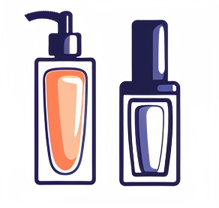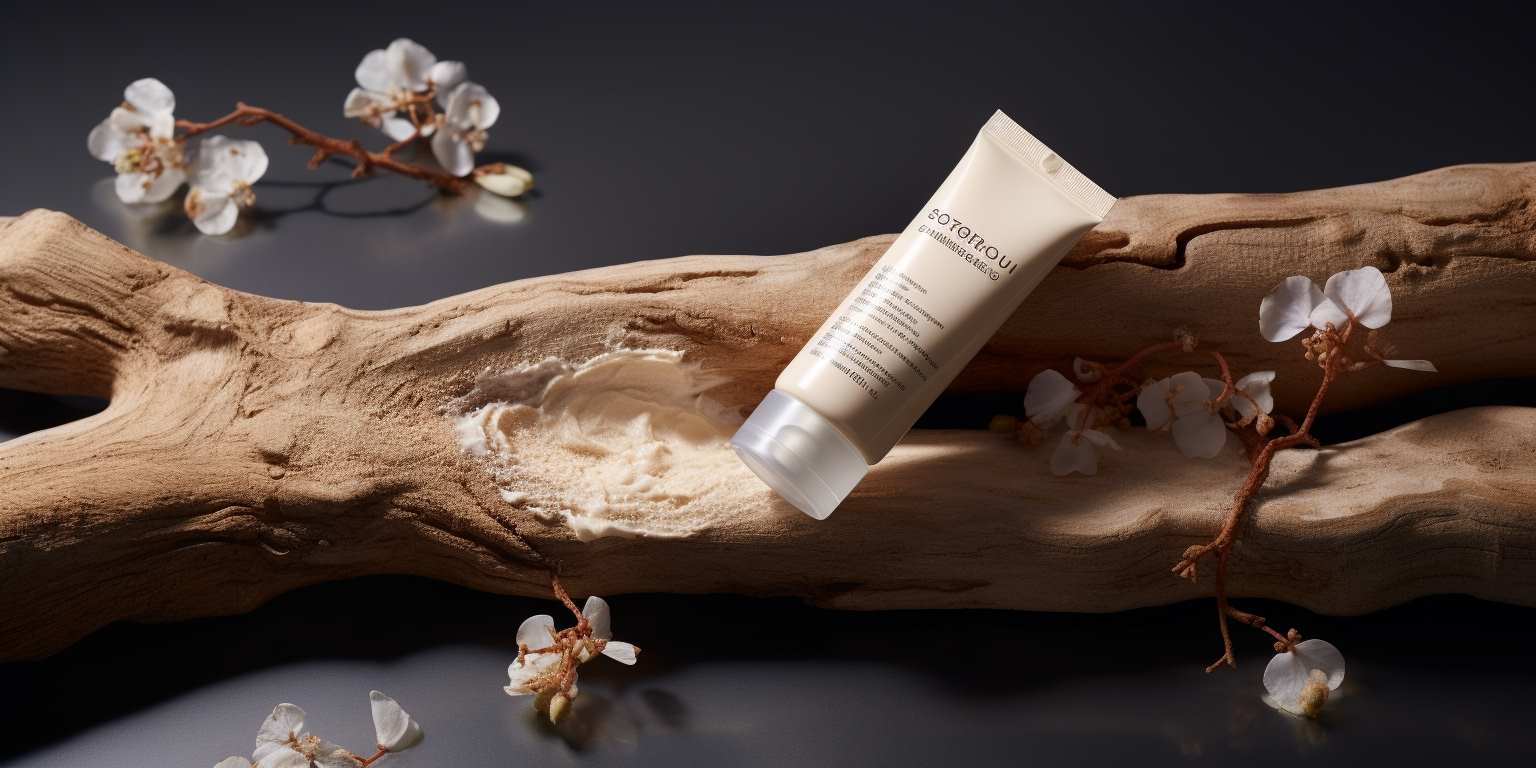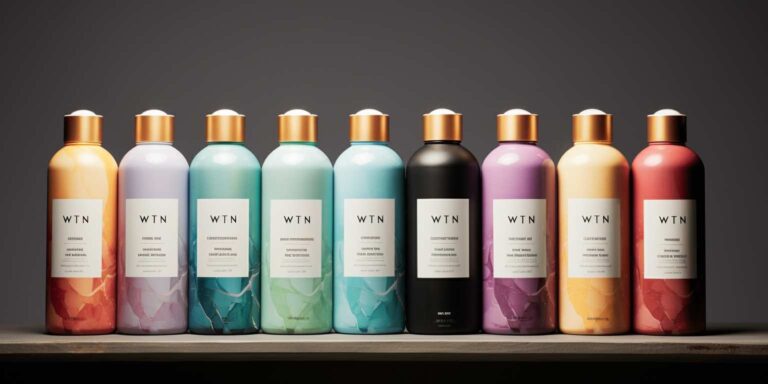How to find the best gentle shampoo for sensitive scalp
First and foremost, look for shampoos labeled as “gentle” or “sensitive scalp” formulas. These are formulated to be mild and soothing, often free from harsh sulfates, parabens, and fragrances that can exacerbate scalp issues.
Ingredients play a crucial role in determining the efficacy of a gentle shampoo for sensitive scalps. Opt for organic or natural ingredients such as aloe vera, chamomile, calendula, and coconut oil, known for their calming and moisturizing properties.
| Key Ingredients to Look For: | Benefits: |
|---|---|
| Aloe Vera | Soothes irritation and hydrates the scalp |
| Chamomile | Anti-inflammatory properties, calms sensitive skin |
| Calendula | Healing properties, reduces itching |
| Coconut Oil | Nourishes and moisturizes the scalp |
It’s also essential to avoid common irritants such as artificial fragrances, dyes, and alcohol. These ingredients can strip the scalp of its natural oils and cause further irritation.
When selecting a gentle shampoo for sensitive scalps, consider the texture of the product as well. Creamy or gel-like formulas tend to be gentler than clear, foaming shampoos. They provide extra hydration and protection to the scalp.
Another tip is to opt for shampoos labeled as “hypoallergenic” or “dermatologist-tested”. These certifications indicate that the product has undergone rigorous testing to ensure compatibility with sensitive skin.
Hypoallergenic scalp care shampoo: a safe choice
In the realm of hair care, finding the right shampoo is paramount, especially when dealing with sensitive scalps prone to allergic reactions. This is where hypoallergenic scalp care shampoo emerges as a hero, offering a safe haven for those seeking gentle yet effective cleansing without the risk of triggering allergies.
What sets hypoallergenic scalp care shampoo apart is its meticulously crafted formulation, devoid of common allergens and harsh chemicals that can irritate sensitive scalps. These shampoos are specifically designed to cater to individuals with delicate skin, ensuring a soothing and nourishing experience with every wash.
Hypoallergenic scalp care shampoo typically incorporates gentle cleansing agents derived from natural sources such as coconut or olive oil, which effectively remove impurities without stripping the scalp of its natural oils. This gentle cleansing action helps maintain the scalp’s moisture balance and prevents dryness, a common concern for those with sensitive skin.
| Key Features of Hypoallergenic Scalp Care Shampoo |
|---|
| Mild Formulation: Free from harsh chemicals and common allergens |
| Nourishing Ingredients: Enriched with natural extracts to soothe and hydrate the scalp |
| Hydrating Action: Helps maintain scalp moisture balance and prevent dryness |
| Hypoallergenic: Suitable for individuals with sensitive skin prone to allergies |
Furthermore, hypoallergenic scalp care shampoo often incorporates botanical extracts known for their soothing properties, such as chamomile, aloe vera, and lavender. These ingredients not only calm irritated skin but also impart a pleasant fragrance, enhancing the overall shower experience.
For individuals with eczema, psoriasis, or dermatitis, finding the right shampoo can be a daunting task. However, hypoallergenic scalp care shampoo provides a gentle yet effective solution, offering relief from itching and inflammation without exacerbating existing skin conditions.
Mild formula for sensitive skin: the gentle approach
In the realm of skincare, catering to sensitive skin requires a delicate dance between efficacy and gentleness. The quest for the perfect mild formula for sensitive skin is akin to a poetic ballet, where each ingredient pirouettes with grace, leaving behind a trail of soothing sensations.
Picture a skincare elixir that speaks the language of gentle nourishment to your delicate dermis. Imagine a concoction that doesn’t just cleanse but also whispers promises of tranquility to your sensitive soul. The secret lies in the formulation – a symphony of calming agents harmonizing to create a skincare sonnet.
The cornerstone of a mild formula is the exclusion of harsh chemicals that can send sensitive skin into a tumultuous tango. Instead, embrace the power of natural ingredients, their benevolence wrapped in the embrace of a nurturing touch. Think aloevera for its hydrating ballet, or the gentle caress of chamomile to pacify irritated skin.
But a mild formula isn’t just about what’s included; it’s equally about what’s omitted. Bid farewell to sulfates and alcohols, and welcome the soft embrace of hypoallergenic elements that cradle your sensitive skin in a loving cocoon.
Let’s break down the essence of a mild formula into its elemental dance partners:
| Key Ingredient | Role |
| Aloevera | Skin hydration and soothing |
| Chamomile | Anti-inflammatory properties |
| Hypoallergenic elements | Reduced risk of skin reactions |
Imagine these ingredients swirling in a balletic rhythm, each movement choreographed to cater to the sensitivities of your skin, leaving no room for the dissonance of irritation.
Choosing a mild formula isn’t just a skincare decision; it’s a commitment to self-care. It’s an acknowledgment that your skin deserves a gentle embrace, a pledge to adorn it with the tender touch of nature.
Nurturing your scalp with gentle ingredients
When it comes to nurturing your scalp with gentle ingredients, it’s essential to understand the significance of choosing the right products. Our scalp is the foundation of healthy hair growth, and maintaining its health is crucial for overall hair vitality.
Many commercial hair products contain harsh chemicals that can strip the scalp of its natural oils, leading to dryness, irritation, and even dandruff. This is why opting for gentle ingredients is paramount. Natural, botanical extracts such as aloe vera, coconut oil, and tea tree oil can work wonders in soothing and nourishing the scalp.
Here’s a breakdown of some gentle ingredients:
| Ingredient | Benefits |
|---|---|
| Aloe Vera | Known for its hydrating and calming properties, aloe vera can soothe an irritated scalp and promote healthy hair growth. |
| Coconut Oil | Rich in healthy fats and vitamins, coconut oil deeply moisturizes the scalp, preventing dryness and flakiness. |
| Tea Tree Oil | With its antibacterial and antifungal properties, tea tree oil can help combat dandruff and scalp irritation, promoting a clean and healthy scalp. |
When shopping for hair products, look for those that prioritize natural and gentle ingredients. Avoid products containing sulfates, parabens, and artificial fragrances, as these can exacerbate scalp issues.
How to nurture your scalp:
- Choose the right shampoo and conditioner: Opt for sulfate-free formulas that are gentle on the scalp.
- Massage your scalp: Regular scalp massages can improve blood circulation and promote healthy hair growth.
- Avoid overwashing: Washing your hair too frequently can strip the scalp of its natural oils. Aim to wash every 2-3 days.
- Protect your scalp from the sun: Just like your skin, your scalp can burn. Wear a hat or use a sunscreen spray to protect it.
The role of natural oils in sensitive scalp care
In the realm of sensitive scalp care, the significance of natural oils cannot be overstated. These precious elixirs from nature’s bounty possess a myriad of properties that cater to the unique needs of sensitive scalps, offering a holistic approach to soothing and nurturing. Let’s delve into the core aspects of how natural oils play a pivotal role in maintaining scalp health.
Sensitive scalps often grapple with issues like irritation, dryness, and inflammation. Here, the calming properties of certain natural oils come into play. Oils such as chamomile and lavender boast anti-inflammatory characteristics, providing relief to an irritated scalp. When gently massaged, these oils work their magic, soothing the scalp and restoring a sense of tranquility.
Hydration is another critical factor in sensitive scalp care. Argan oil and jojoba oil stand out as excellent moisturizers, deeply nourishing the scalp without leaving a greasy residue. Their lightweight nature makes them ideal for those with sensitive skin, offering a surge of hydration without overwhelming the delicate balance of the scalp.
For those combating the incessant battle against dandruff on a sensitive scalp, tea tree oil emerges as a potent ally. Its antifungal properties target the root cause of dandruff, providing a natural and effective solution. Incorporating a few drops of tea tree oil into a carrier oil creates a powerful elixir that not only combats dandruff but also imparts a refreshing sensation to the scalp.
When it comes to promoting overall scalp health, rosemary oil takes the spotlight. This botanical gem enhances circulation in the scalp, fostering an environment conducive to hair growth. Massaging a diluted solution of rosemary oil stimulates the scalp, invigorating the hair follicles and promoting a lustrous mane.
Understanding the intricacies of incorporating these natural oils into a routine is key. A thoughtful blend, tailored to individual needs, can elevate the scalp care experience. Mixing a few drops of calming oils with a carrier oil and applying it with gentle, circular motions during a massage not only addresses sensitivity but also turns the routine into a therapeutic ritual.
Avoiding irritants: what to look for in shampoo labels
Avoiding irritants: what to look for in shampoo labels
Choosing the right shampoo can be a daunting task, especially when you’re confronted with a plethora of options on the store shelves. But fear not, for with a little knowledge about what to look for on shampoo labels, you can make an informed decision that promotes the health of your hair and scalp.
First and foremost, avoid sulfates. Sulfates are harsh cleansing agents commonly found in shampoos that create that satisfying lather but can strip away natural oils from your scalp, leaving it dry and irritated. Look for shampoos labeled as sulfate-free to steer clear of these potentially harmful ingredients.
Another group of ingredients to watch out for are parabens. These preservatives are added to many beauty products to prolong shelf life, but they have been linked to skin irritation and disruption of hormone function. Opt for shampoos labeled as paraben-free to minimize your exposure to these chemicals.
For individuals with sensitive skin or allergies, fragrances can be a major culprit in shampoo-induced irritation. Many shampoos contain artificial fragrances that can trigger allergic reactions or exacerbate existing skin conditions. Look for shampoos labeled as fragrance-free or hypoallergenic to minimize the risk of irritation.
It’s also important to pay attention to pH balance. The natural pH of your scalp is slightly acidic, around 5.5, and using a shampoo with a similar pH can help maintain the health of your scalp’s protective barrier. Look for shampoos labeled as pH-balanced or formulated specifically for your hair type.
When scanning shampoo labels, keep an eye out for harsh surfactants such as sodium lauryl sulfate (SLS) or sodium laureth sulfate (SLES). These ingredients can strip away natural oils and irritate the scalp, particularly for those with sensitive skin or conditions like eczema or psoriasis. Opt for gentler surfactants like coco-glucoside or decyl glucoside instead.
Finally, consider your individual hair and scalp needs when selecting a shampoo. Whether you have dry hair, oily hair, or a sensitive scalp condition, there are shampoos formulated to address your specific concerns. Look for keywords like moisturizing, clarifying, or scalp-soothing on shampoo labels to find the right product for you.
| Ingredient to Avoid | What to Look for Instead |
|---|---|
| Sulfates | Sulfate-free formulations |
| Parabens | Paraben-free formulations |
| Artificial Fragrances | Fragrance-free or hypoallergenic formulations |
| Harsh Surfactants | Gentle surfactants like coco-glucoside or decyl glucoside |
Establishing a soothing hair care routine
Establishing a soothing hair care routine
In the hustle and bustle of our daily lives, it’s easy to overlook the importance of a soothing hair care routine. Yet, taking the time to care for your hair can not only enhance its appearance but also promote overall well-being. Whether you have a luxurious mane or a short crop, a thoughtful hair care regimen can work wonders. Let’s delve into the essentials of establishing a routine that pampers your locks and nurtures your scalp.
Understanding your hair type
Before diving into products and treatments, it’s crucial to understand your hair type. Is it straight, wavy, curly, or kinky? Is it fine, medium, or coarse? Determining these factors will guide you in selecting the most suitable products and techniques for your hair.
Gentle cleansing
Regular cleansing is essential to remove dirt, oil, and product buildup from your hair and scalp. However, harsh shampoos can strip away natural oils and leave your hair dry and brittle. Opt for gentle, sulfate-free shampoos that cleanse effectively without causing damage. Consider washing your hair 2-3 times a week to maintain a healthy balance.
Conditioning and moisturizing
After cleansing, follow up with a nourishing conditioner to replenish moisture and improve manageability. If you have dry or damaged hair, consider using a deep conditioning treatment once a week to restore vitality. Look for conditioners enriched with hydrating ingredients such as coconut oil, shea butter, or argan oil.
Scalp care
Healthy hair starts with a healthy scalp. Incorporate scalp massage into your routine to stimulate circulation and promote hair growth. You can use your fingertips or a scalp massager to gently massage the scalp in circular motions. Additionally, consider using scalp serums or oils containing ingredients like peppermint or tea tree oil to soothe irritation and nourish the scalp.
Protective styling
Minimize heat styling and harsh treatments that can damage your hair. Instead, embrace protective styles like braids, twists, or buns to shield your hair from environmental stressors and reduce breakage. When heat styling is necessary, always use a heat protectant spray to minimize damage.
Healthy habits







